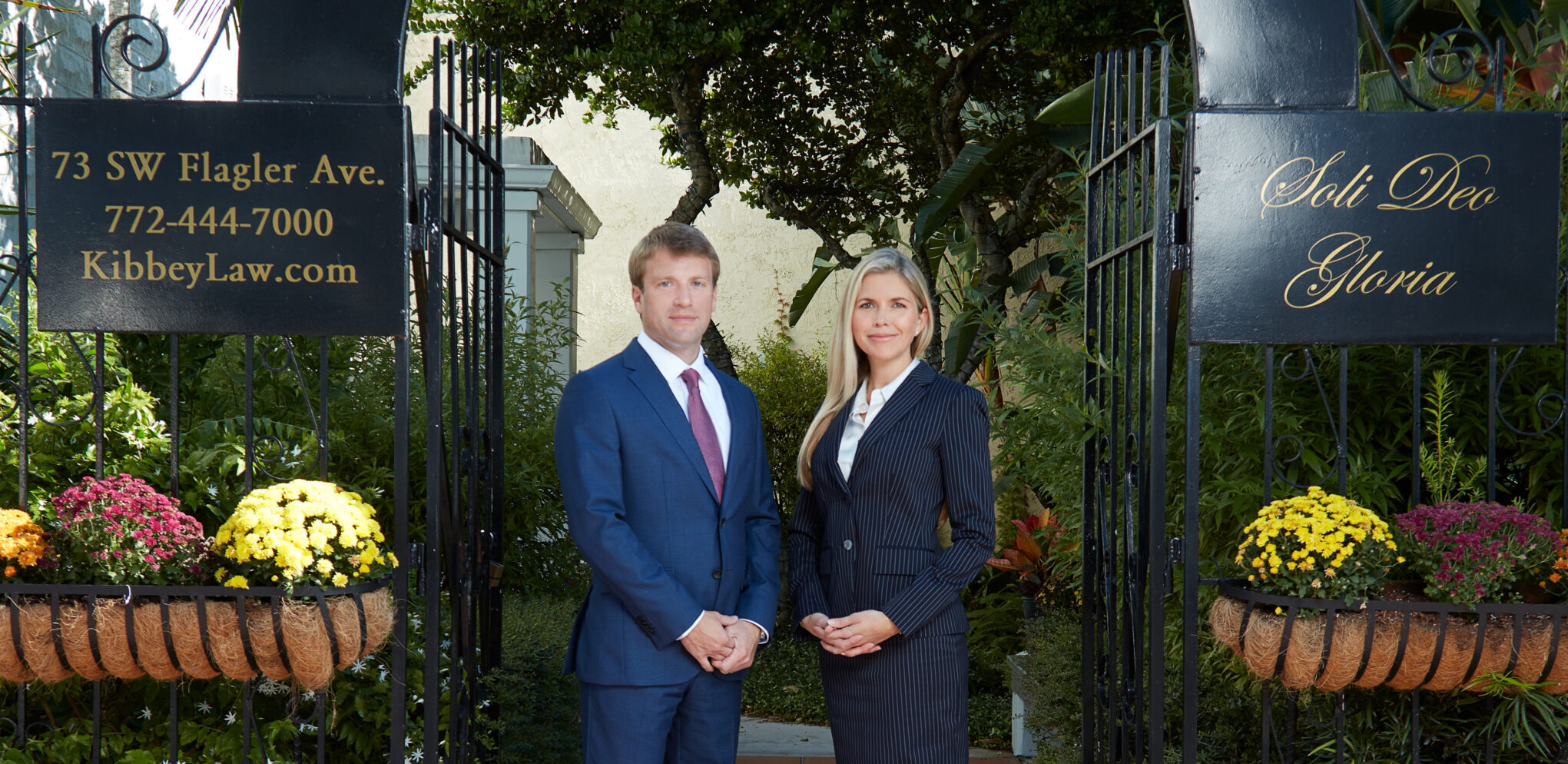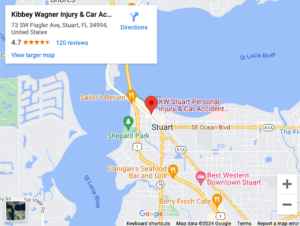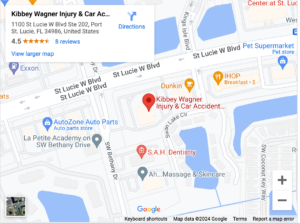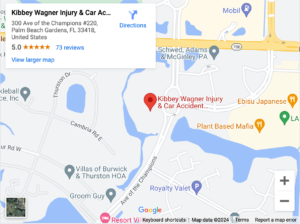
If you are injured in an accident or other personal injury incident, you will likely deal with an insurance adjuster. Understanding the insurance adjuster’s role in your personal injury case can help you deal with them more effectively. Always remember, an insurance adjuster works for the insurance company. They do not work for you nor have your best interests in mind when processing an insurance claim.
What Is an Insurance Adjuster in a Florida Personal Injury Case?

An insurance adjuster is a professional who handles insurance claims, typically on behalf of the insurance company. The insurance adjuster investigates the claim to determine the extent of the insurer’s liability for economic and non-economic damages, and whether the claim is valid under the terms of the insurance policy. An insurance adjuster assesses the value of the victim’s damages and recommends settlement amounts.
Different types of insurance adjusters may be involved in your case, including:
- Staff Adjusters are employed by the insurance company.
- Independent Adjusters are contracted by insurance companies on a temporary or specific case basis.
- Public Adjusters work specifically for policyholders to help them determine the value of their insurance claim and assess the fairness of a settlement offer.
Insurance adjusters must be licensed to work in Florida. Each type of insurance adjuster has specific requirements for licensing. They also must possess skills and knowledge to navigate the process of insurance claims effectively.
Licensing Requirements for Insurance Adjusters in Florida
The Florida Department of Financial Services (DFS) is authorized to issue licenses for insurance adjusters throughout the state, including in Stuart.
The primary licensing requirements for insurance adjusters, according to the Florida Insurance Adjusters Law, include:
- Be at least 18 years old
- Be a Florida resident (for resident licenses) or apply as a non-resident with a reciprocal license
- Submit to fingerprinting and a criminal background check
- Pass the state adjuster exam, unless exempt (many applicants are exempt if they complete an approved pre-licensing education course)
- Public adjusters must obtain and maintain a $50,000 surety bond
- Complete required continuing education every two years, including a 4-hour Law & Ethics Update course
Adjusters are required to complete a specific number of hours of continuing education every two years to maintain their insurance adjuster license. The continuing education must include courses on law and ethics updates.
What Is the Role of an Insurance Adjuster in a Stuart Personal Injury Claim?
In most personal injury claims, the insurance adjuster is the primary contact person for the insurance company involved in the case. Their role involves investigating the claim, damage assessment, liability determination, valuation of losses, and settlement negotiations.
Even though the insurance adjuster works for the insurance company, there are key legal protections and ethical duties required of insurance adjusters, including:
- Conduct business in good faith and fairness
- Avoid conflicts of interest and maintain trustworthiness
- Comply with licensing requirements and continuing education
- Maintain proper documentation and act in accordance with Florida insurance laws
Unfortunately, insurance companies train adjusters to protect the company’s best interests. That means, adjusters actively search for evidence and information they can use to deny claims and undervalue damages. Therefore, when dealing with an insurance adjuster, it is crucial to keep this in mind to protect your rights.
For example, an insurance adjuster may request a recorded or written statement from you. Providing statements without legal counsel is not in your best interest. The adjuster may twist statements you make to imply that you caused the accident or that you are exaggerating your injuries and damages.
Allowing an attorney to handle communications with the insurance company and the adjuster can help protect you from bad faith insurance practices and aggressive maneuvers.
How Public Adjusters Can Help Florida Insurance Claimants
Public insurance adjusters act on behalf of the claimant to advocate for a fair and just insurance settlement. A public adjuster can help a claimant maximize their settlement. They have no loyalty to the insurance company or the at-fault party.
Ways a public adjuster can help a claimant include, but are not limited to:
- Conducting on-site inspections for property damage
- Reviewing and interpreting insurance policies
- Estimating and documenting damages
- Negotiating directly with an insurance company for settlement
- Manage complex claims involving fire damage, hurricanes, flooding, and other natural disasters
Hiring a public insurance adjuster can be helpful for an individual dealing with a complicated insurance claim. However, there is a drawback. Most public adjusters are not licensed personal injury lawyers.
Therefore, they cannot file bad faith insurance or personal injury lawsuits. An attorney can provide legal advice and representation that a public adjuster cannot. A better option may be to work with an attorney who can hire expert witnesses, including public adjusters, if needed to assist with the claim.
Contact Kibbey Wagner Injury & Car Accident Lawyers for a Free Consultation
You deserve to have a team of legal professionals fighting for your rights and best interests after an accident or personal injury. Our Stuart personal injury lawyers at Kibbey Wagner Injury & Car Accident Lawyers can assist you with disputes involving insurance claims and personal injury cases. Contact us today at (772) 444-7000 for a free consultation to discuss your legal options for recovering compensation from the party that caused your injuries.




